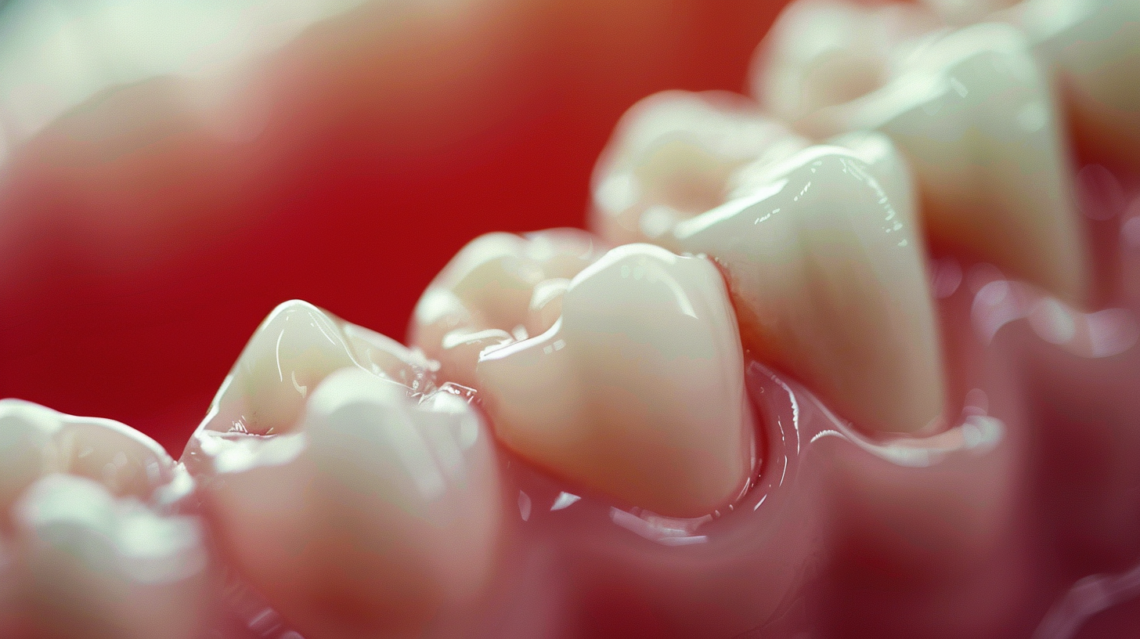
Preventing and Treating Sensitive Teeth
If you’ve ever had a sudden, sharp pang of pain while enjoying a hot beverage or indulging in an ice cream, you are certainly not in the minority. Indeed, approximately one in every eight Canadians are plagued by sensitive teeth. This common dental condition is primarily precipitated by exposure to foods and beverages at extreme temperatures—both hot and cold—as well as those that are notably sweet or sour in flavour. While tooth sensitivity can affect individuals of any age, it is observed with greater frequency among adults.
Tooth sensitivity generally indicates that there has been a breakdown in the protective barriers of the teeth; meaning either the enamel has worn away, or a root of the tooth has become exposed. Enamel is the hard, protective outer layer of the tooth that acts as a shield against various external factors, such as temperature. However, when this protective coating erodes, it exposes the underlying dentin, the layer of the tooth directly beneath the enamel that contains microscopic tubules leading to the nerve. This exposure allows external stimuli to reach the nerve, resulting in the sharp pain you feel known as tooth sensitivity. The primary triggers for this pain are usually thermal—hot and cold foods and beverages—but several other factors can also exacerbate tooth sensitivity, including:
- Consumption of acidic foods
- Clenching or grinding of the teeth
- Gingivitis or gum disease
- Fractured or broken teeth
- Damaged or cracked dental fillings
- Issues arising from previous root canal treatments
- Neglect in maintaining proper oral hygiene
In order to effectively prevent and manage tooth sensitivity, it is essential to engage in regular dental check-ups and cleanings. These routine visits allow dental professionals to thoroughly assess the health of your teeth and gums, and to document any changes that could potentially predispose you to sensitivity. They can also provide valuable advice on preventive strategies, such as the use of different dental products designed to minimize sensitivity, and the importance of good oral hygiene practices. If teeth grinding is a concern, a dentist can also custom-fit a mouthguard to help protect your teeth from the effects of grinding during sleep.
Beyond the dentist’s chair, several at-home practices can help manage tooth sensitivity. One beneficial change is switching from regular toothpaste to one that is designed to help desensitize the teeth. These types of toothpastes are specially formulated to reduce sensitivity by building a protective barrier over the teeth and blocking the pathways that lead to the nerve, thereby reducing pain. Additionally, these toothpastes also help prevent tartar build-up and reduce the risk of cavities, similar to standard toothpastes. Proper oral hygiene is crucial for managing sensitivity; this includes brushing gently but thoroughly at least twice a day with a soft-bristled brush, and ensuring you’re flossing regularly. Using a fluoride mouth rinse can also decrease sensitivity and help prevent the formation of cavities. Modifying your diet is advisable, too, particularly if you frequently consume foods that are high sugars, or are acidic.
For a comprehensive understanding of sensitive teeth and to explore more dental health tips, visit the Canadian Dental Association’s official website at www.cda-adc.ca. Additionally, do not forget that April has been designated as Oral Health Month—a perfect time to prioritize your dental well-being.

